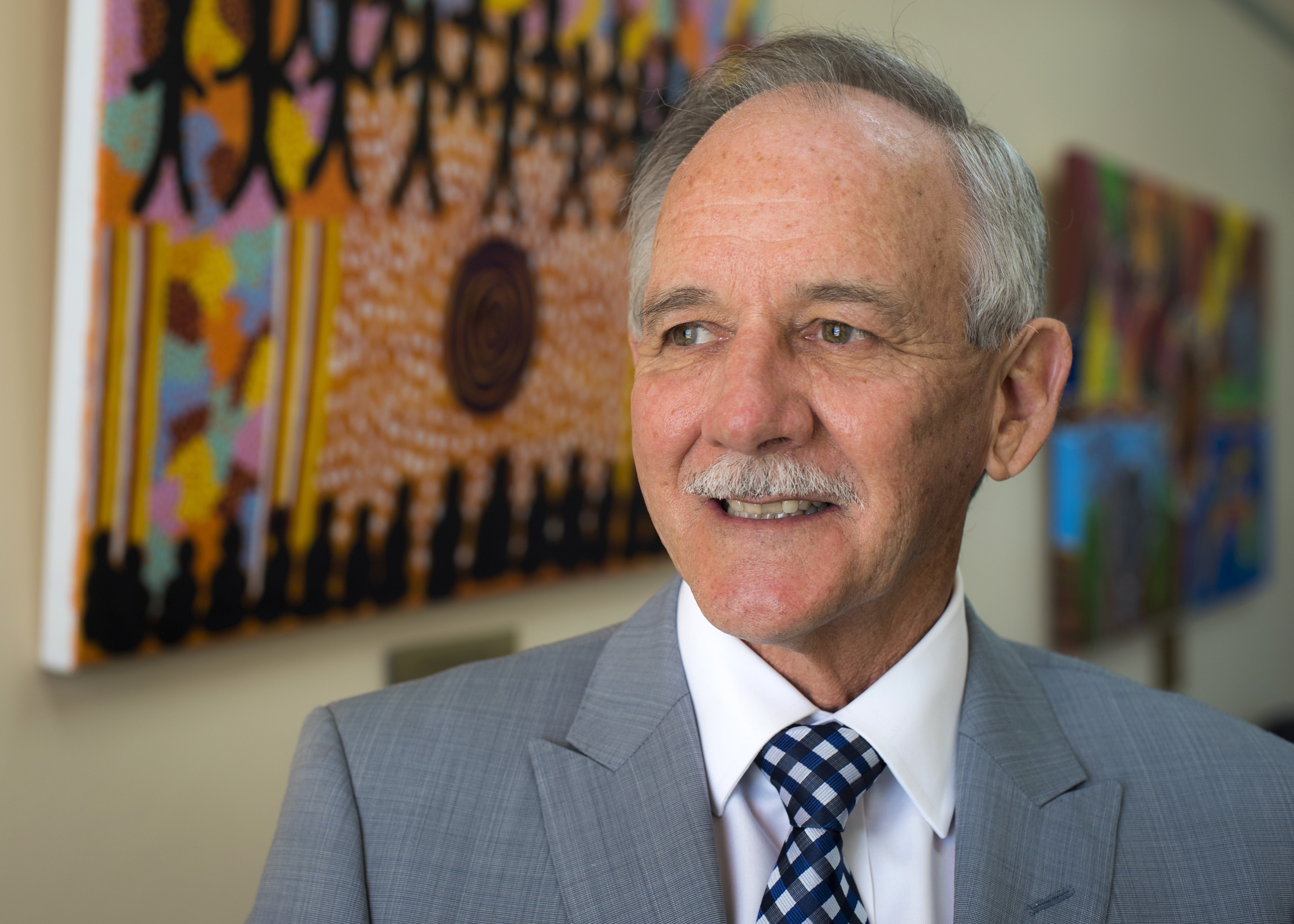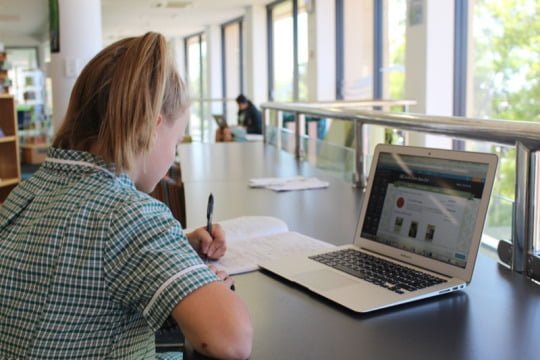Choosing schools can be difficult for parents. As with most aspects of parenting, there is a growing obsession with getting it ‘right’. Choosing the right education is often perceived as the key to a successful life. Yet there is very little discussion at any level of what it means to be ‘educated’.
Santa Maria College Principal, Ian Elder, has been teaching for over 40 years. He has been principal of two of WA’s most innovative and successful schools and with mere months until his retirement, he maintains a level of enthusiasm for education that is inspiring. He is the perfect person to ask, what does it mean to be educated?
In short his answer is “to improve the human condition. We need to learn to know, learn to do and learn to live together”. It is a poetic answer, but it speaks to a recognition that change is upon us. Mr Elder says that in the past education has been about preparation for jobs. Those jobs could be identified, named and we could set our sights on a specific objective. That has changed.
Mr Elder uses as his example the law profession. When we employ a lawyer, essentially what we are purchasing is their experience and knowledge. They have the ability to recall precedent and calculate the probability that a case will go to trial. That process can and will be automated and the highly esteemed profession will change dramatically. So why are we educating people for this and other jobs that are going to disappear? He sites The Economist in June 2016, which states that 47% of Americans are in jobs that will soon be automated.
Our education model was largely formed by The Industrial Age. It was designed to educate as many people as possible, as quickly as possible. It was then refined by the Technology Age. Now, as almost a logical progression, we have entered the Age of Innovation.
Mr Elder recognises that the idea of innovation frightens many, however; he believes we are all capable of that sort of creativity. He points out that Santa Maria College runs programs for 10 and 11 year olds that focus on innovation. These kids are not defined by the traditional mindset that you are either an Arts person or a Science person. He is keen to break down the traditional dichotomy that results in gender stereotypes about future subject selections. A brain is a brain; it doesn’t favour one kind of knowledge, and it was built to explore, question and create.
So what is essential in an education? Mr Elder believes that these are the top skills that are required by a school leaver:
- Problem solving
- Critical thinking
- Creativity
- People management
- Collaboration with others
- Emotional intelligence
- Decision making with a moral prerogative
The last point he explains with, “If a child leaves school and they don’t understand and value difference, if they are not compassionate and they do not have a sense of social justice or value community service, then we have failed.”
He believes that these are also the skills that are required in a university education. In fact, Mr Elder challenges the seemingly odd structure of learning as it stands. In school, up until tertiary entrance courses, we teach creativity. In Year 11 and 12 we essentially teach a body of knowledge, which gets added to by an undergraduate course and then further added to in a Masters. It is only in a PhD (or some Masters levels) that we return to creative thought and innovation.
Mr Elder believes it is not just schools that need to change, but universities too. In fact, universities first, as they are what drives the measurement culture of all education. If a university is demanding a particular entrance mark, schools will conform and teach the content required to attain that mark. Because teachers care about the opportunities available to kids, they help students jump through the hoops that enable opportunity. The hoops need review.

Education is at the crossroads. “The age of elite advantage is over”. By this he means, if all information is now available online then the traditional ways of completing upper secondary and university courses is available to all without the need to attend a particular educational institution. Having said that, while online education can assist with ‘learn to know’ and ‘learn to do’, the ‘learning to live together’ and his listed skills of the future require face to face interaction.
Mr Elder sees the library of the future a library of people. The library remains a centre piece of educational institutions but returns full circle to the mentorship of Ancient Greece. We may not be walking around courtyards in robes and sandals, but teaching will be conversation. We will learn to think creatively and apply knowledge and ultimately…innovate.
In Singapore, the shift from knowledge to skills is already obvious. As part of their SkillsFuture initiative, the government currently offers a $500 credit to every citizen over 25 who wants to upgrade their skill set. That shows an investment in skills not seen before. Those skills are often in the area of high tech manufacturing. What are the skills that Australia would subsidise if such a scheme existed?
Singapore also aims to create a virtual Silicone Valley. Imagine a highly connected network of universities and companies from around the world. This system would provide budding entrepreneurs with the global networks to develop, finance and commercialise innovations. It’s a brave new world.
So, in the midst of all this change, with a job market that is unpredictable, what advice does Mr Elder give school leavers? “You need to be technologically competent, but ultimately, follow your passion.” And he is right. Passion is the constant. Skills can be learnt and the future will present new types of jobs and career opportunities, so passion is the compass that needs to guide us.






